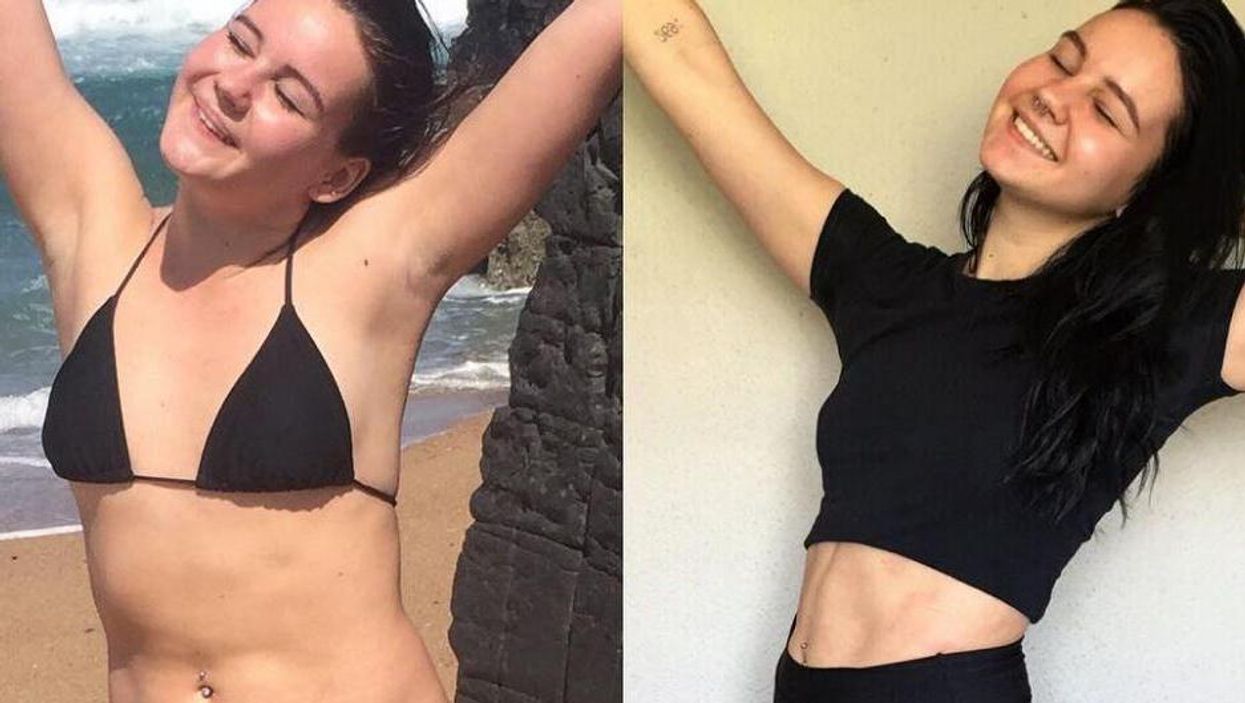News
Narjas Zatat
Sep 28, 2016

There’s such a wealth of information about dieting and nutrition available online, it can be difficult to distinguish fad culture from solid, medical advice.
Instagram is a haven for fitness gurus, self-proclaimed ‘food’ experts, and with thousands of followers their lifestyle is often imitated.
On Tuesday, Instagram blogger Sara Puhto uploaded the following:
Puhto wrote:
I have a healthy relationship with food. Eating 2000-3000 calories - I roughly estimate and always eat more than 2000 cal because I know I'll be hungry if I eat less. I eat healthy 70-80% of the time. Just remember: don't let numbers get you down and define you. Don't go on some silly starvation diet- it won't work in the long run.
Puhto isn’t the only Instagram personality to have alternative views about nutrition and exercise. Earlier this week Jennifer Widerstrom posted two completely different pictures just two minutes apart.
Puhto claims to consume between 2,000 and 3,000 calories. The recommended calorie intake according to the NHS is 2,000 for women and 2,500 for men.
Is that healthy?
indy100 spoke to Dr Arun Ghosh, a private GP who is also the resident doctor for The Jeremy Kyle Show where he advises about nutrition.
So. Talking about calorie controlled diets…
There is some essence of good in macrobiotic diets [getting the right balance between carbohydrates, proteins and fats).
2,000 calories a day isn’t just about having it from a cream cake. It’s about nutrient valued to what you do in your life.
For example, if you’re exercising, you do need carbohydrates and taking them out of your diet will do more harm than good.
As a GP, what do you work towards in terms of nutrition?
[My work] dispels the myth that calories are interchangeable units – like 100 calories from wine and 100 calories from cabbage is the same thing. It’s not.
Where you source your calories from is more important than the amount of calories you’re taking.
If you’re eating lots of fruit and vegetables, it’s going to be much better [for your health] than eating fried chicken.
It’s about lifestyle choices, and not about watching the calories you eat.
If you get your fats from fish, avocado and you go over [the 2,000 or 2,500 recommended daily calorie intake], it’s still much healthier than getting fat from fried food and take away.
Are the recommended daily amounts outdated?
It’s too rigid – it’s a good guideline, a general guideline – a little like BMI. But I wouldn’t go up to a rugby player and tell them they are fat.
There a huge variations.
If you’re [eating] over the expected amount and you’re really active and getting calories from a good, balanced source, then you’re generally going to be okay.
Again, if you're [eating] below the expected amount but you're sedentary, and you're getting the calories from a balanced source, you're generally going to be okay.
People can often take this very rigidly. There are so many variations – men, women, pregnancy, and menopause.
Be proactive rather than reactionary.
If you’re hungry, have a biscuit. If you’re not, don’t have a biscuit.
Food manufactures need to label their meals better, and we also need to be much healthier with our conception of food.
It’s not a diet; this is how you should be all your life. And if you want a bit of cake, have a bit of cake.
The expert has spoken.
More:Hey vegans! Turns out your diet isn't so good for the environment
More:These three photos show why weight really is just a number
Top 100
The Conversation (0)













